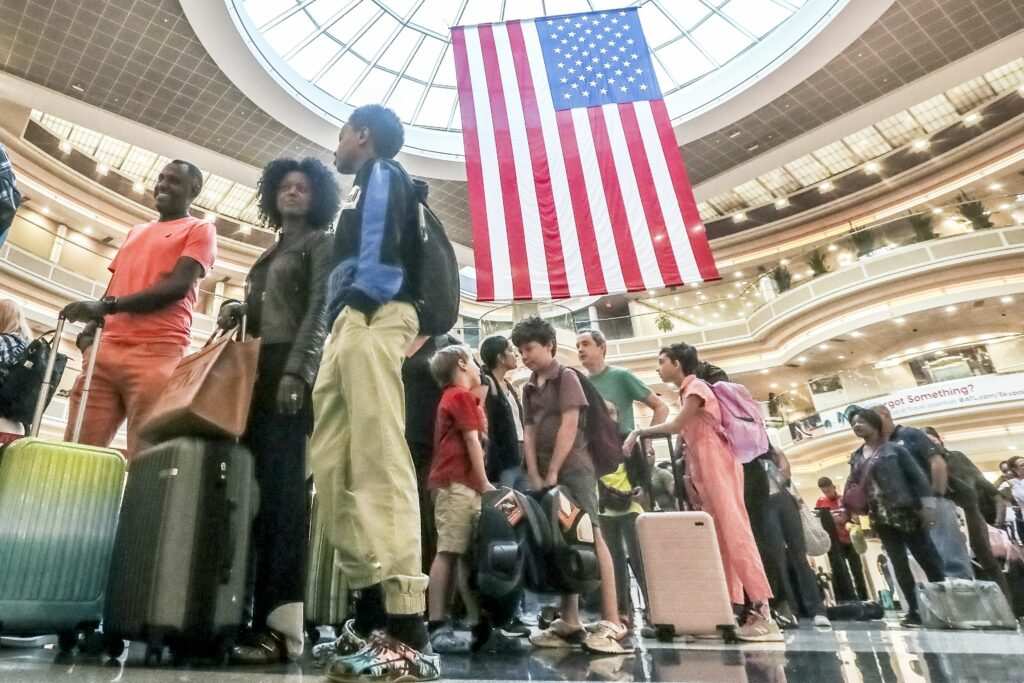How bad is the travel experience for airline passengers?
There are so many complaints about airline service right now that U.S. government officials aren’t able to keep up and meet deadlines to publish customer service data — a sign of the level of frustration airline travelers are dealing with, according to a consumer group.
The U.S. Department of Transportation said last week as it released its monthly air travel consumer report that the agency “continues to receive a high volume of air travel service complaints” about air travel.

The DOT said it has delayed the release of the consumer complaint data “primarily because of the time needed to review and process these consumer complaints.” It added that “it is increasingly clear that consumer complaints are not returning to pre-pandemic levels.”
DOT’s monthly consumer reports typically include data that are a couple of months old. But it took until Aug. 2 for DOT to report complaint numbers for February.
Since then, and for the second summer in a row, travelers have encountered long security waits, delayed flights and other service issues caused by a number of factors, including airport and airline staffing.
U.S. PIRG Education Fund, a public interest group, said in a report released Thursday morning that airlines “should focus on realistic scheduling, refunding passengers quickly for canceled flights, transparent pricing instead of adding gotcha fees, and resolving customer issues quickly and fairly so that consumers don’t need to file a complaint.”
While PIRG urged airlines to improve their service, a travel industry group pushed for more federal funding to improve travel infrastructure.
Industry group U.S. Travel Association said some travelers are “avoiding trips due specifically to air travel hassles.”
Hours-long waits to get through Customs, inconsistent wait times at Transportation Security Administration checkpoints and flight cancellations due to air traffic controller shortages show that “the federal government is failing travelers,” said Geoff Freeman, president of the U.S. Travel Association, during a briefing Wednesday. “This is a result of years of federal under-investment … . It’s left us with a system that is under-staffed and under-funded.”
“The air travel experience is not going to get better until we see significant and sustained investments in the FAA,” Freeman said.
The FAA forecasts this weekend, with the Columbus Day holiday, will be its busiest holiday weekend so far this year, with a peak of 54,204 flights expected Thursday.
Freeman acknowledged that high air fares, limits on corporate travel budgets and other factors contribute to people deciding not to fly.
But, he said the top issues business travelers cite “really deal with the inefficiencies of travel, the fear of delays and cancellations.”
Airline industry performance varies significantly between carriers.
DOT data released last week show that Atlanta-based Delta Air Lines and its Delta Connection carriers combined had the highest on-time arrival rate in the airline industry in the first six months of the year, with 81.5% of flights arriving on time.
Frontier Airlines had the worst on-time performance with 63.6% of flights arriving on time.
Dallas-based Southwest Airlines, the second-largest carrier at Hartsfield-Jackson, performed better than Delta when it came to flight cancellation rates. Southwest was among the three carriers with the lowest cancellation rates in the first six months of the year, along with Allegiant Air and Alaska Airlines. Southwest canceled 1.32% of its flights of the period, while Delta canceled 1.45% of its flights.
Spirit Airlines had the worst cancellation rate, with 2.17% of its flights canceled in the first six months of the year.
The month of June was rife with long tarmac delays, which are investigated by the DOT. There were 74 reported tarmac delays of more than three hours on domestic flights, up from only three the previous month. Many were during severe storms that hit the New York area in late June, and also left hundreds of travelers stranded overnight at Hartsfield-Jackson International Airport.
___
© 2023 The Atlanta Journal-Constitution
Distributed by Tribune Content Agency, LLC.



